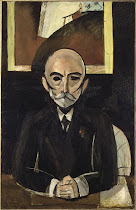Part 1 - Different But Equal
Part 2 - The Language of Love
Part 3 - Patterns of Love
Part 4 - Passages of Life
Part 5 - The Maternal Dilemma
Part 6 - The Gender Wars
I've watched Part 1 and through writing I found what I find unsettling about this series.
Part I lays the foundation for the series with the premise that the sexes are "equal but different". This is due to an evolutionary history that involved the division of labour. Females were designed for stamina and maternity and males were designed for speed, strength and hunting.
 The series is accompanied by the seemingly omnipresent camera which travels around the world and is narrated by the authoritative British accent of Morris telling us what "science has proven". In the classic debate over human behaviour, Morris ascribes to nature (biological determinism) over nurture (socialization). However, he often points out that cultures exaggerate masculinity and femininity in different ways and that upbringing can change biology (as is the case with female bodybuilders who have extremely low body fat).
The series is accompanied by the seemingly omnipresent camera which travels around the world and is narrated by the authoritative British accent of Morris telling us what "science has proven". In the classic debate over human behaviour, Morris ascribes to nature (biological determinism) over nurture (socialization). However, he often points out that cultures exaggerate masculinity and femininity in different ways and that upbringing can change biology (as is the case with female bodybuilders who have extremely low body fat).I like the style of the documentary, Morris looks at human beings as if he were removed from them. But I find his attempt to remain objective to be unsettling. I didn't agree with the theory that men have superior navigational skills and sense of spacial recognition from a "test" of a classroom of students drawing bicycles. I find these more controversial statements to be slyly tucked in after obvious segments like "women have breasts".
Unsettling
I understand the desire for Morris to present "objective science" but I feel it's a filter that removes the point. Initially, I thought this would be a neat documentary for an alien to watch but then I started seeing it as a distortion.
 It's leaving out a very important aspect of human history. When Morris talks about the sexes being "different but equal" I think he ignores a historical and international trend of patriarchy. In his attempts to show equal strengths and weaknesses of both sexes he avoids critically confronting the elephant in the room: why did so many cultures evolve that restrict women? I understand that biologically men and women are "different but equal" if we use the criteria that they have a biological duty to continue the species. But socially we are different and unequal and though it's an uglier tagline it unsettles me how it is hidden by a smokescreen of "objective science".
It's leaving out a very important aspect of human history. When Morris talks about the sexes being "different but equal" I think he ignores a historical and international trend of patriarchy. In his attempts to show equal strengths and weaknesses of both sexes he avoids critically confronting the elephant in the room: why did so many cultures evolve that restrict women? I understand that biologically men and women are "different but equal" if we use the criteria that they have a biological duty to continue the species. But socially we are different and unequal and though it's an uglier tagline it unsettles me how it is hidden by a smokescreen of "objective science". Assumptions:
Assumptions:-He opens the series explaining that the world is divided into two sexes, completely ignoring hermaphrodites.
-He talked about the depiction of hunting in cave paintings without any inclination to prove how we know they were drawn by men.
-"Science has shown" is a terribly unscientific claim. I have no idea how the study was conducted that concluded men navigate by thinking of maps and women navigate by thinking of landmarks. I know that I do both and I feel it's more of a matter of experience with the area than gender.



No comments:
Post a Comment